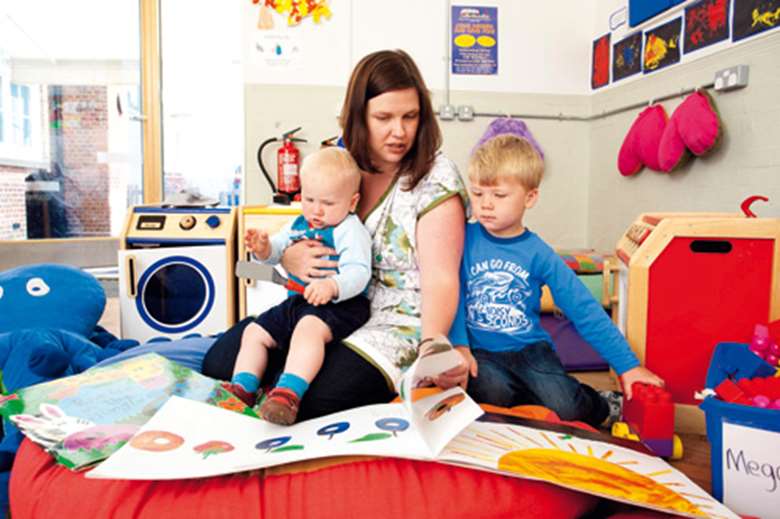Call for 'early excellence fund' to boost childcare quality
Joe Lepper
Wednesday, November 16, 2016
Government should establish a £111m "early excellence fund" to help boost childcare quality by introducing a number of measures including ensuring there is at least one graduate in every early years setting.

The Family and Childcare Trust (Fact) said the fund would allow four aims to be pursued to improve childcare provision. In addition to ensuring a graduate in every setting, the fund would allow for the provision of financial incentives to improve training and professional development of non-graduate staff.
It would also be used to establish networks to share expertise and improve links between providers and early intervention services, as well as covering the cost of increasing the number of early years special educational needs coordinators (Sencos) to support settings.
The trust says the £111m extra spending each year would amount to just two per cent of the £6bn the government plans to spend on early years next year, when from September 2017 all three- and four-year-olds will be entitled to 30 hours of free childcare each week.
The call for the fund's introduction features in Fact's Putting Quality at the Heart of the Early Years report.
Claire Harding, head of research at Fact, said: "Investing in high-quality childcare is a rare opportunity to support families' social mobility and boosts children's life chances."
She added that while she welcomed the government's policy of providing 30 hours of childcare, Fact is concerned that "lack of investment in quality in the early years will mean many families will struggle to access childcare that is good enough in quality to boost their children's outcomes".
Purnima Tanuku, chief executive of the National Day Nurseries Association, backs the trust's call for greater investment in the early years workforce and warns that the roll out of the 30-hour entitlement next year could "threaten quality if funding shortfalls are not addressed".
She also called for further investment to improve hourly rates that settings receive, which are "already inadequate for many" are "set to stand still" from next year in spite of rising costs through the national minimum wage and business rate hikes.
Last month the NDNA, in its Workforce Survey 2016, warned that a "catastrophic recruitment crisis" is threatening the sector and called on the government to set up a "workforce investment fund" to help settings recruit and retain high-quality staff.
Tanuku added: "If we are to increase the number of graduates in settings across the country then we must be able to offer attractive pay and conditions to both recruit and retain them in sector."
Neil Leitch, chief executive of the Pre-school Learning Alliance, said: "At a time when there is so much focus on the affordability and accessibility of childcare, we welcome the report's recognition of the vital importance of quality early years provision.
"Such quality can only be sustainably delivered through adequate investment, and so we fully support the principle behind the call on government to dedicate funding to improving and sustaining quality in the early years.
"That said, the introduction of an early excellence fund would not address the fundamental historic underfunding issues facing early years providers.
"To put it bluntly, additional funding for, for example, more graduates or Sencos will only be effective if there are enough early years providers still in business to employ them and as it stands, the ongoing lack of investment by government has left many in the sector struggling to stay afloat."
A Department for Education spokeswoman said: "We want all parents to have access to high quality, affordable childcare. There are already a record number of nurseries, pre-schools and childminders rated as ‘good' or ‘outstanding', the proportion of children reaching the expected learning standards continues to rise and more than 16,000 specialist early years graduates have been trained.
"But we are determined to go further. That's why we are creating a workforce strategy to help attract, retain and develop the very best staff and investing more than ever in the sector - £6bn per year by 2020."




